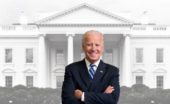Re The UN General Assembly Speaker Schedule is Here! I note that whoever will be speaking for Canada this year…
Wednesday Night #1392
Written by Diana Thebaud Nicholson // November 5, 2008 // Herb Bercovitz, Reports, Wednesday Nights // Comments Off on Wednesday Night #1392
T h e R e p o r t
In the wake of the historic events of Election Night, it was not surprising that discussion focused largely on the impact of President Obama’s election and the problems that he will face when he takes office. He has given strong indications that he is an attentive listener to advice from good people, is able to sift through alternatives and make difficult choices. Not only has he gathered a number of brilliant economic advisors (Buffett, Rubin, Summers, Volcker, to name a few), but he has reached out to less obvious sources of information such as Paul Wolfowitz, former U.S. Ambassador to Indonesia, Deputy Secretary of Defence and President of the World Bank, who has met and briefed him.
Foreign Affairs
The world image as well as the self-image of America has been changed by the election victory of Barack Obama. No longer will the United States dictate to the rest of the world. However, his popularity overseas, and especially in Europe, permits him to start the difficult task of repairing the image of the United States with an unequaled reserve of good will. This, coupled with his apparent willingness to listen to world leaders, compromise and make deals, gives considerable cause for optimism, despite the challenges that loom.
Energy & Environment
One of the commitments made by the President-elect is to eliminate U.S. dependency on foreign oil and dirty fuel. There is some concern as to whether and/or how the Alberta tar sands [Shifting sands: Canada, the world and the tar sands] would be affected and how the U.S. might achieve this aim.
It is not true that Barack Obama does not favour nuclear energy. What he has said is that nuclear power should be part of U.S. energy plans, but that the nation must find “safer ways to use nuclear power and store nuclear waste.” He said the focus should be finding new energy sources.
Some Wednesday Nighters maintain vigorously that nuclear energy is the answer to the American quest for clean energy, arguing that solar and wind power require fossil fuel backup, and the latter has limited practical applications, i.e. coastal water farms and in the far north where petroleum is currently trucked from the south and the danger to bats and birds and the nuisance of vibrations in the vicinity are tolerable. [A timely article is the lengthy And What Would Don Quixote Do?, with the sub-head: Windmills don’t generate greenhouse gases and are quick to construct, yet activists are decrying them with a fervour once reserved for nuclear plants]
The United States has an impressive reserve of coal that can be processed into liquid hydrocarbons, a solution that would revive the once prosperous coal industry while fulfilling the President’s promise of home grown solutions to the inconvenience and dangers implicit in dependence on imported oil.
A North American Climate-Change Accord?
A portend of the impact on future U.S.-Canada relations might possibly be offered by the appointment of the exceptionally competent Jim Prentice as Minister of the Environment with a mandate to develop a North American climate-change accord. [Canada – U.S. Post 2008 Elections]
Sarah Palin
Although her perceived down-to-earth image, openness and strongly-held Conservative convictions, initially attracted many grassroots Americans, Sarah Palin eventually became a turn-off for many, including the women voters who were disappointed Hillary supporters. And the news late in the campaign of her wardrobe expenditures did not help her with hockey moms and others struggling to make ends meet. As to the apparent surprise of her pick as the vice presidential candidate, it surfaced late in the campaign that she is if nothing else, a cunning self promoter, with backing from a number of important insiders. Thus, it seems obvious that Governor Palin may have gone back to Alaska, but she has not disappeared for good from the national political scene. Already she is being touted as a candidate in 2012.
The economy
Although all are concerned about the current state of the economy and there is little doubt that the world is in recession (twenty-five trillion dollars have been lost in the crash). Wednesday Night experts remain less certain about the immediate future. There is some belief that we are building a base, following which the market will start moving at as yet undetermined date. This scenario sees the potential of impressive gains for the brave and missed opportunities for the faint of heart. A second scenario, at least equally credible, sees us heading for a deep depression which, because it is global in nature, will be much worse than that of the 1930’s during which, because of the instability of the market, it is predicted that treasury bonds will be in demand.
Québec election call for December 8
Saying that to continue with a minority government is an “unreasonable risk in this time of economic uncertainty,” Premier Jean Charest has taken the risk of calling a provincial election at a time when he remains in control of the legislature, enjoys widespread elector satisfaction and the opposition is in disarray. The electorate, having recently suffered through a similar process at the federal level are less than sanguine about an election at this time. Undoubtedly, M. Charest sees this as a small window of opportunity during which he is at the peak of his popularity; the economy, although declining, is still at an acceptable level; Mario Dumont has lost much credibility and support; Pauline Marois has not yet had the opportunity to rise to attain the level of Leader of the opposition; and separatism is generally in decline. During his campaign he will undoubtedly attempt to paint the picture of an affluent Québec with the planned development of the untold riches of the far north. The potential problem is that elections are at best, a lottery and the odds do not favour the incumbent when several elements are factored in, the most important being the hitherto unrecognized potential strength of Pauline Marois who, in addition to being a seasoned, intelligent politician, is enjoying increasing credibility within her party. While it is probably true that separatist sentiment is on the decline in Québec, a misstep on the part of Prime Minister Harper during the recent federal election campaign saw a defection of potential Conservative Party voters, not to the Liberals but to the Bloc, a party that had been seen to be in decline prior to the election. It is not beyond the realm of possibility that the perceived disarray of the ADQ will translate into votes for the Parti Québécois which may very well also profit from the electorate’s festering anger at M. Charest for calling an expensive election perceived to be totally unnecessary by the voting public. Whoever is elected will, however, have to deal with a deteriorating financial and fiscal situation.
Medicare
Explainable only by the perceived devotion to sacred cows and the supremacy of fiscal, financial, linguistic and political motives over consideration of health care needs in the province, the future of Medicare remains somewhat bleak in this province. Although Physician Assistants are beginning to be trained here, at times the definition of their duties is determined more by collective agreements than by logic. The numbers of Physicians and Nurses trained are barely adequate to cover replacing those who have left or retired. Furthermore, while the numbers of graduating Physicians are barely adequate, some are not permitted to practice by the government’s cost-controlling measures of limiting numbers that can be hired in each region of the province. Health professionals are aging as are patients and retirements in the health care field are poised to increase sharply as the needs of a population increasing in age as well as numbers will undoubtedly exacerbate the problem.
France and Québec have signed an agreement of mutual recognition of qualifications of professionals and trades including health professionals. While, this might appear to be a possible solution to the shortage, the reality of the mirage becomes evident when considering that the province limits the hiring of home-grown Physicians graduating and qualifying here. This year, Québec graduated 238 Physicians, but limited recruitment to 211. The one advantage of the agreement between Québec and France appears to be the warm feeling of linguistic affinity between close cousins.
Prologue
For those of you who cannot make it on Tuesday, you are cordially invited, under the usual conditions, for the wrap-up on Wednesday Night, November 5th, appropriately, Guy Fawkes Night.



